10 Key Drivers Of Private/Hybrid Cloud Adoption

Private/Hybrid Opportunity Beckons
Enterprises are increasingly looking to private clouds to keep some of their core assets under their control while still moving to a cloud environment, according to a survey released this week by Technology Business Research (TBR).
TBR interviewed 45 cloud infrastructure decision makers and used results from 300 online surveys from similar professionals, and it found that users are rapidly moving to private and hybrid clouds and supporting their critical business tasks with private clouds, which offer more robust performance, cost benefits and security.
Continue on to see the key drivers of private/hybrid cloud adoption.
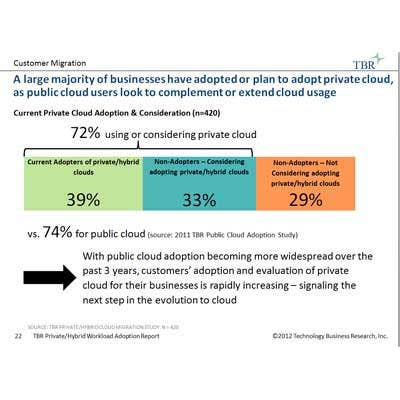
1. The Private Cloud Is Already Here
A solid majority, 72 percent, of IT decision makers surveyed said they have adopted or plan to adopt private cloud, as public cloud users look to complement or extend cloud usage.
The rapid adoption of private clouds is a signal that cloud computing is evolving from a simple public.
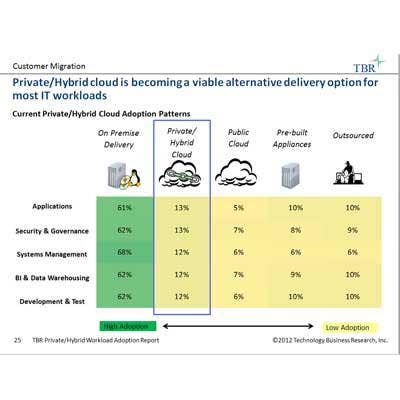
2. IT Managers Look Favorably On Private/Hybrid Clouds
The Private/Hybrid cloud is becoming the most popular alternative delivery option to on-premise delivery, as managers use it more often than public clouds, outsourcing or pre-built appliances.
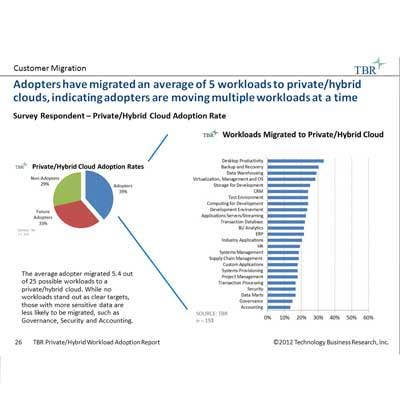
3. Mangers Migrate Five Workloads On Average To Private/Hybrid Clouds
While no workloads stand out as clear favorites, those with less sensitive data are more likely to be migrated, such as desktop productivity, backup and recovery, and data warehousing.
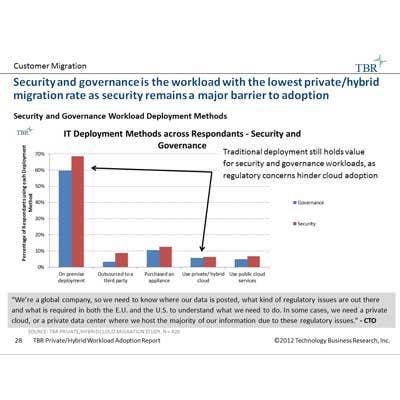
4. Security And Governance Hinders Adoption
Managers, worried about regulatory issues, continue to keep security and governance workloads on-premise.
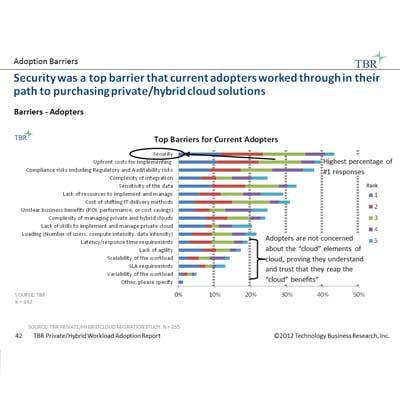
5. Security Topped Concerns Of Private/Hybrid Cloud Adopters
More than 40 percent of those who are already using private/hybrid clouds listed security as their highest concern, just ahead of upfront implementation costs and regulatory risks.
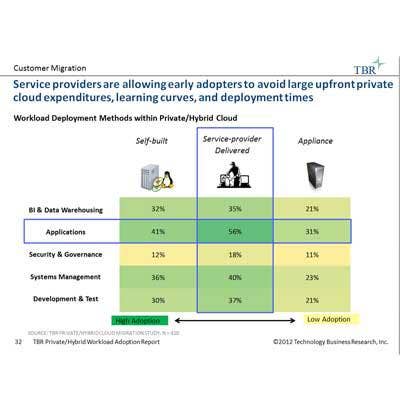
6. Service Providers Lead The Way To Adoption
Service providers are delivering the highest percentage of private/hybrid cloud services across several categories, ahead of self-built clouds and appliances.
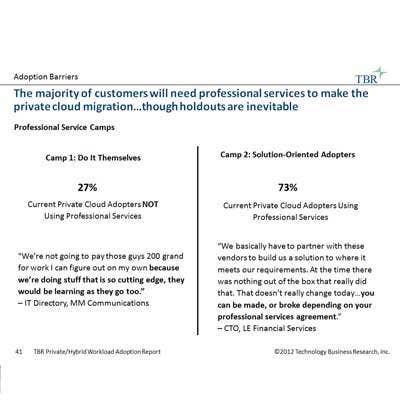
7. Large Majority of Private Cloud Adopters Used Professional Services
Solutions-oriented adopters, at 73 percent, outnumbered those who built private clouds themselves, at 27 percent.
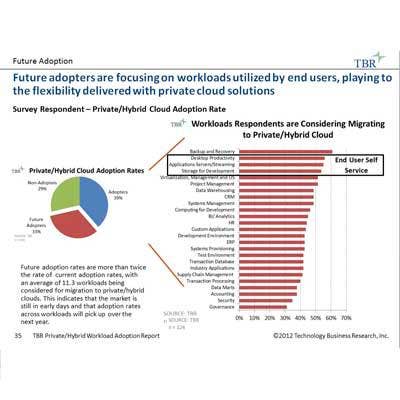
8. Future Adopters Consider End-User Self-Service
In the future, the number of workloads companies plan to migrate to private/hybrid clouds will more than double to 11.3 workloads.
The types of workloads under consideration include desktop productivity and applications servers/streaming.
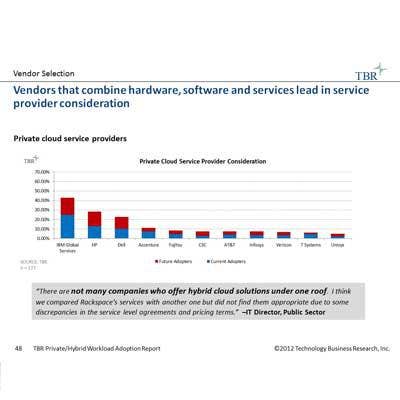
9. Hybrid Cloud Solutions Capture Interest Of Private Cloud Users
IT managers considered most highly vendors that combine hardware, software and services, such as IBM, Hewlett-Packard and Dell.
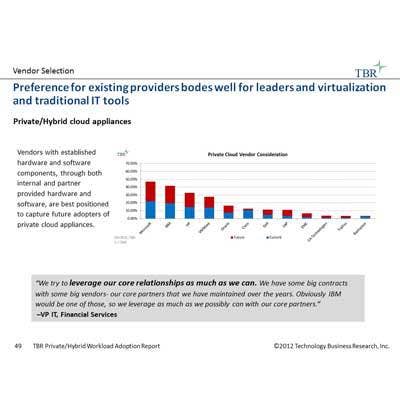
10. Established Vendors Well-Positioned For Private/Hybrid Cloud Business
Well known vendors such as Microsoft, IBM and HP, with hardware and software components, offering both internal and partner provided products and services, are best positioned to capture future adopters of private cloud appliances.